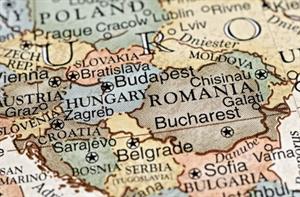 When you think of Eastern European cultures, words that might come to mind are “pride” and “toughness.” While strongly associated with the former Soviet Union, this area of the world has a history extending far beyond its time under Soviet rule. Today, Eastern Europe, which is made up of 10 different countries, is a wonderful place to do business.
When you think of Eastern European cultures, words that might come to mind are “pride” and “toughness.” While strongly associated with the former Soviet Union, this area of the world has a history extending far beyond its time under Soviet rule. Today, Eastern Europe, which is made up of 10 different countries, is a wonderful place to do business.
According to the United Nations Statistics Division, Eastern Europe is classified as Belarus, Bulgaria, Czech Republic, Hungary, Moldova, Poland, Romania, Russia, Slovakia, and Ukraine.
So, why should companies do business in Eastern Europe?
The people are tough and focused on survival. They are very hospitable to people they consider part of their own group. As a culturally diverse area, these countries have survived by welcoming competition and by concentrating power in the hands of leaders.
There are wide-ranging differences among these countries, each with their own culture, many with their specific languages (though most of them are Slavic in origin), different religions (mostly Muslim or Christian). Their national boundaries have shifted almost as if they were desert nations and shifting sands make it impossible to track their exact boundaries. A man I once worked with in Croatia told me, “My grandfather lived in seven different countries, and he never moved from his house once.” It took me a while to figure out how that was even possible.
If given the opportunity to do business in Eastern Europe, here are a few tips to remember to make your experience a positive one:
- Do your research.
Learn something about the country’s economy, tax rates, or history so you avoid major gaffes. The Czech Republic, for example, hasn’t been Czechoslovakia since 1993, so don’t refer to it by its former name.
- Learn a few new words.
It is always courteous to learn a few words in local languages. Take a translation dictionary or download a phone app to help you along the way. You don’t have to be able to hold full conversations, but knowing how to say “hello” and “good morning” in another language will show others you are engaged.
- Embrace the culinary differences.
National cuisines are an important part of each of these countries, so don’t be too afraid to try some of the local foods even if they seem a little too exotic for your palate. Be experimental. Just because you have never tasted something does not mean it will kill you. Countries take pride in their food, so knowing a little about it will warm you to the hearts of locals. For example, did you know olive oil is one of the splendors produced in Croatia? If you visit, be sure to pick some up.
- Don’t stay in your hotel.
If you are conducting business in Eastern Europe, you may have the opportunity to visit some of the best but often overlooked cities in the world. These include Ljubljana, the capital of Slovenia. It’s a 2,000-year-old Roman outpost and today is modern and filled with art and life. Doesn’t that sound like a lot more fun than watching TV alone in your room? Explore!
The basic rules for successfully interacting within Eastern Europe are the same as for any other place in the world. Slow down. Observe carefully. Avoid judging. Apologize in advance if you think you don’t understand. Don’t be upset if people don’t smile at you. Remember, you are a stranger and have to earn their smiles. Be open to learning a different way of doing things. Work at developing trust. And understand that even though there are similarities in this region of the world, there are profound differences. Be respectful and you will avoid culture clashes.